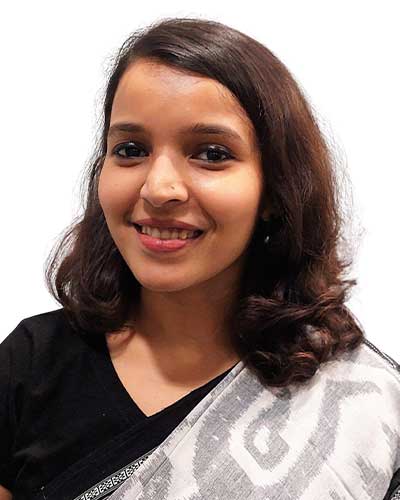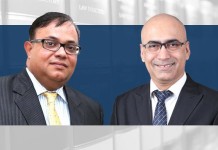Technology is acting as a disruptor across all spheres: social, economic, and legal. Constitutional rights jurisprudence has not been untouched by industrial revolution 4.0. Recent decisions of constitutional courts, worldwide, have arisen from or related to rapid technological developments and their impact on fundamental rights.
The Constitution of India has dynamically evolved, and it now recognises fundamental rights, including the right to privacy, marriage, and access to the internet. With emerging technology, Indian courts are compelled to either mould existing constitutional principles to new scenarios or replace the obsolete older doctrine with evolving ones.

Senior Associate
TMT Law Practice
Traditionally, courts have enforced constitutional rights vertically only against state actors. However, with a shift from laissez faire to welfare governance models, countries have recognised the horizontal effect and are enforcing constitutional rights even against non-state actors, thus, ensuring adequate protection of fundamental rights. Countries with newer constitutions like South Africa, directly recognise the horizontal effect in the Bill of Rights and prohibit unfair discrimination by individuals. Others with older constitutions such as the US, Ireland, Canada and Germany have adopted an indirect horizontal effect through judicial decision-making or legislation.
In India, fundamental rights violation by non-state actors is addressed through certain constitutional provisions or indirectly through legislation and judicial precedents. Direct horizontal enforcement is provided in the constitution, under articles 15(2), access to public places; 17, untouchability; 23, forced labour, and 24, employment of children. These provisions aim to fulfil the constitutional promise of maintaining socio-economic equality. However, the increase in public-private interface and the significant impact of non-state actors on fundamental rights, particularly on the freedoms under article 19, and right to life and personal liberty under article 21, have widened the scope of horizontal enforcement.
In enforcing horizontal rights, courts have awarded damages and passed orders against: non-state entities violating the right to a clean environment; private airlines discriminating against disabled passengers; private colleges discharging public educational functions. It has directed private employers to protect women’s fundamental rights in the workplace; and obligated doctors of both public and private hospitals to protect life. The reasoning behind these decisions is that private players perform public duties or discharge statutory functions which affect citizens’ rights, and hence, such non-state actors should be held to the same standards as public entities performing such functions.
A close reading of part III of the constitution reveals peculiar distinctions, possibly retained deliberately by the constitution framers. While certain rights provide for directives against the state alone, others, such as articles 15(2)(a) and (b), 17, 20(2), 21, 23, 24, 29(2) are conferred on persons/citizens, without merely being enforceable against the state. Violation of any other fundamental right, not listed above, leaves individuals to pursue common law remedies against non-state entities.
The above position changed when the Supreme Court in Justice KS Puttaswamy (Retd) v Union of India expanded the horizontal effect by placing a duty on both state and non-state actors to protect the right to privacy. The court recognised that the state must, through legislation, protect the right to privacy even when threatened by non-state entities. Finally, the Supreme Court in Kaushal Kishore v State of Uttar Pradesh held that articles 19 and 21 are enforceable against persons other than the state and its agencies. The decision recognises the reality where state monopoly is being replaced by private players such as intermediaries and internet service providers, thereby, requiring a paradigm shift in part III enforcement against private actors. The judgment also calls for creating a legal framework that defines constitutional torts, breaches of which would be remedied by courts.
In the age of the internet, private players often infringe rights including, privacy, speech, trade, and business. Therefore, if fundamental rights are unenforceable against internet gatekeepers, these rights will be compromised. Dominant technology giants deal in data, impact free speech, control market accessibility, and the right to trade. In the absence of data protection legislation, individuals have even taken court action to enforce their right to be forgotten, and have even challenged WhatsApp’s policies for violating the right to privacy.
Today, we stand at the dawn of a new era of judicial intervention, driven by technological advancements. Enforcement of fundamental rights against internet gatekeepers is more necessary now than ever, to meet statutory inadequacy. Undoubtedly, the state is under a positive obligation to protect fundamental rights even by non-state actors. However, as technology outruns legislative endeavours, it is only time that courts create guidelines and enforce horizontal rights against private players, to effectively protect rights that lie at loggerheads with technology and commercial exploitation.
Atmaja Tripathy is a senior associate at TMT Law Practice
TMT Law Practice
C-2/39, Safdarjung
Development Area,
adjacent to Aurobindo Market
New Delhi-110 016, India
Contact details:
T: +91 (11) 26512813
+91 (11) 41682996
E: Info@tmtlaw.co.in




























